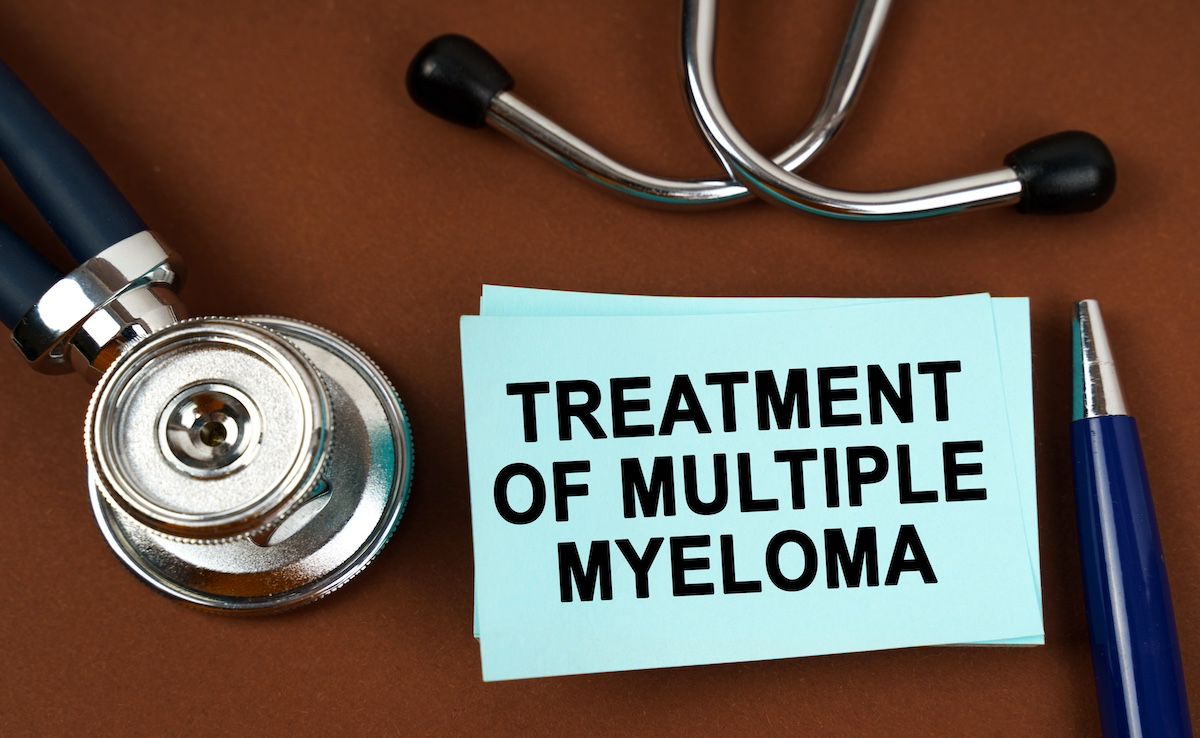- Center on Health Equity & Access
- Clinical
- Health Care Cost
- Health Care Delivery
- Insurance
- Policy
- Technology
- Value-Based Care
Challenges With Pomalidomide for Patients With Comorbid RRMM, CKD
Patients who have comorbid relapsed/refractory multiple myeloma (RRMM) and advanced chronic kidney disease (CKD) are often excluded from clinical trials, leaving treatment gaps for these high-risk patients.
Population-based cohort study results were mixed for patients with comorbid chronic kidney disease (CKD) and relapsed/refractory multiple myeloma (RRMM) who received pomalidomide-based treatment in Ontario, Canada. Although these patients were likely to experience a 50% improvement in their kidney function, they also were more likely to have less chance of survival and were at higher risk for major adverse kidney events (MAKE).
Because these patients are often excluded from randomized controlled trials, the authors of the study in Clinical Lymphoma, Myeloma and Leukemia1 wanted to fill a gap in their potential treatment options. The primary outcome of interest was mortality, and secondary outcomes were MAKE, time to next MM treatment (TTNT), and kidney response to antimyeloma therapy.
“An important aspect of pomalidomide is its hepatic metabolism, which decreases the need for dose adjustment in cases of advanced CKD,” the study authors wrote. “However, there are minimal data on kidney function recovery after pomalidomide-based treatment (including dialysis independence), or outcomes related to progressive kidney disease.”
Pomalidomide was first approved for use in Canada by Health Canada for patients with RRMM on January 20, 2014; at that time, it was approved as part of a doublet regimen with dexamethasone.2 An additional indication came on July 10, 2019, when it was approved as part of a triplet regimen with bortezomib and dexamethasone.3
Patients with comorbid RRMM and severe CKD are often left out of clinical trials, leaving a lack of research on effective treatments for them | Image Credit: Dzmitry-stock.adobe.com

There were 748 patients in this analysis who received their first cycle of pomalidomide between January 1, 2014, and August 21, 2020; they were stratified by 3 levels of kidney function according to estimated glomerular filtration rate1:
- Preserved: at least 60 mL/min/1.73m2 (n = 440; mean [SD] age, 67.72 [10.05] years)
- Moderate CKD: 30 to 59 mL/min/1.73m2 (n = 210; mean [SD] age, 73.89 [8.34] years)
- Severe CKD: below 30 mL/min/1.73m2 or end-stage kidney disease on kidney replacement therapy (n = 98; mean [SD] age, 73.43 [9.62] years)
Those with moderate and severe CKD had been on a median of 4 previous therapies, and patients with preserved function, 5. The 3 most common overall comorbidities were hypertension (62.8%), diabetes (28.7%), and ischemic heart disease (24.1%).
Results show that in patients with preserved kidney function, 59%, 15%, 20%, and 3% received initial pomalidomide doses of 4, 3, 2, and 1 mg, respectively; in patients with moderate CKD, corresponding rates were 41%, 18%, 33%, and 9% to 13%; and in those with severe CKD, 23%, 31%, 39%, and 2% to 6%. Patients with severe CKD also had the shortest median (IQR) treatment duration of 4.6 (2.0-12.9) months vs the longest of 6.4 (2.8-16.2) in those with preserved kidney function.
Adjusted and unadjusted analyses show significantly elevated all-cause mortality rates among patients with severe CKD vs preserved function (the reference group) (HR, 1.34; 95% CI, 1.06-1.70; and adjusted HR [aHR], 1.37; 95% CI, 1.06-1.78). Factors independently associated with mortality were age (aHR, 1.04; 95% CI, 1.03-1.06), previous MM therapies (aHR, 1.16; 95% CI, 1.00-1.06), history of immunomodulatory drugs (aHR, 1.64; 95% CI, 1.08-2.50), and prior autologous stem cell transplant (aHR, 1.94; 95% CI, 1.52-2.49).
In addition, patients with severe CKD had a 47% greater chance of having a longer TTNT vs 15% in patients with preserved kidney function and moderate CKD. This dropped slightly to 41% in the adjusted model but persisted. This group was also more likely to have less time to their first MAKE (aHR, 1.70; 95% CI, 1.03-2.35).
The most common MAKE was anemia in patients with moderate CKD (adjusted rate ratio [aRR], 1.38; 95% CI, 1.08-1.78) or severe CKD (aRR, 1.76; 95% CI, 1.279-2.42) compared with the patients with preserved kidney function.
With pomalidomide showing effectiveness and safety in these patients, the authors believe that patients with comorbid RRMM and CKD can benefit from the immunomodulatory agent. In particular, they hypothesize that even patients with severe CKD might see real-world benefits and that clinicians should consider it for treatment among patients who are appropriate candidates.
References
1. Meraz-Munoz A, Mian H, Kirkwood D, et al. Pomalidomide use and kidney outcomes in patients with relapsed/refractory multiple myeloma and chronic kidney disease: a real-world, population-based cohort study. Clin Lymphoma Myeloma Leuk. 2024;S2152-2650(24)00265-9. doi:10.1016/j.clml.2024.07.007
2. Pomalyst approved in Canada for relapsed and refractory multiple myeloma. The Myeloma Beacon. February 11, 2014. Accessed August 14, 2024. https://myelomabeacon.org/news/2014/02/11/pomalyst-pomalidomide-imnovid-approval-canada-multiple-myeloma/#:~:text=Health%20Canada%20approved%20Pomalyst%20on,authority%20globally%20to%20approve%20Pomalyst
3. Health Canada approves Pomalyst-based triplet combination for patients with multiple myeloma. News release. Cision. July 10, 2019. Accessed August 14, 2024. https://www.newswire.ca/news-releases/health-canada-approves-pomalyst-r-based-triplet-combination-for-patients-with-multiple-myeloma-843712407.html
